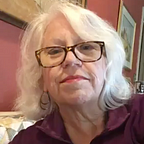How to improve your life
Perhaps you know this cycle.
Something in your life is not going well. It may be a bad habit you’re trying to break or a new resolution that you’re not quite resolved enough to practice regularly. You see where you’re failing, and then proceed to beat yourself up for being (check one or more) hopeless, stupid, weak, an utter failure, or worthless.
This leaves you feeling even worse about yourself, so you respond by (check one or more) eating the entire pint of ice cream, giving away your self-help books and burning your journals, or canceling your therapy appointment (because you just know you’re wasting their time and they must be just so tired of dealing with you.)
Now feeling even worse about how you coped about feeling defeated, you feel stuck and start googling hopeless loser message boards .
Quite a conundrum, isn’t it?
It seems that the only way out is to be perfect — on the first try — in any kind of positive change we try to make. What a set-up for failure!
It seems impossible, unless…
What if we changed the whole framework? What if we examined our lives not to grade ourselves but simply to take a measure of how we’re doing?
What if we approached ourselves with curiosity, not condemnation?
Beating ourselves up for our shortcomings (real or perceived) does nothing but make it harder to change. I mean, why bother? Approaching with curiosity can give us information we need in order to be more successful.
Here’s an example: You decided that you wanted to swim at least three days a week for your mental and physical health. You start out well, but in the course of a few weeks, three days a week turns into two that turns into one every other week that turns into never.
Just one more thing you failed at, right?
Here’s what might happen if you approached it with curiosity. The great family therapist Virginia Satir used to talk about having a wondering . Instead of beating yourself up for being such a failure, you allow yourself to wonder what might be happening.
I’ve not been swimming like I wanted to. I really enjoy it, so I wonder what’s going on with that?
Looking at it further, you realize that you’ve been saying to so many other people that you wound up saying to yourself. You’ve been so overcommitted that there’s no time left to swim. It wasn’t so much about swimming as valuing what everybody else needed more than you valued what needed.
With that insight, you can address the real issue. If you automatically say yes to everyone, you may need to practice giving yourself 24 hours to think about a request. You may need to block out your swim time on your calendar — in ink — and practice saying, “I can’t. I’m busy at that time.” You may need to work on your internal beliefs that demand that you love neighbors than yourself, instead of loving neighbors yourself.
When we come from a place of curiosity, we can identify the real issues behind our stumbling blocks. And, because we’ve approached it gently and not harshly, we have the energy and hopefulness to make shifts that create real change.
I suspect that most of us have a greatest hits of stumbling blocks, those old, unhelpful habits that we return to again and again. When we greet them with gentle curiosity, they become the salesperson (“ Excuse me, are you in need of self-loathing today?” )we shoo away from our door instead of the rude guest for whom we inexplicably make up the guest room and allow to stay for far too long.
All of us also have things we can learn, thinking we can improve upon, and ways in which we can grow. Approaching the process with this spirit of curious engagement allows us to be beginners, to try and fail and learn and try again.
It can help to have someone to help us ask those questions and to find a direction in our answers. That’s what I do as a coach. If you’re interested in talking about working with me, find out more at https://www.heartcallings.com
Originally published at https://www.heartcallings.com.
